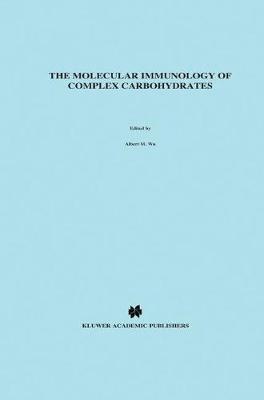Advances in Experimental Medicine and Biology
1 primary work
Book 228
The Molecular Immunology of Complex Carbohydrates
by Albert M. Wu and L. Garry Adams
Published 1 July 1988
During the past three decades, the sugar moiety of complex carbohydrates has been found to be involved in important interactions of immunological specificity of antigens and to participate in a variety of cellular functions. The long polysaccharide side chains of the lipopolysaccharides on the outer membrane of Gram negative organisms provide surface antigens for differential serodiagnosis. Bacterial surface lectins are important in mediating the attachment of bacteria to host cells in the of infectious diseases. The carbohydrate pathogenesis moieties of cell surface glycoconjugates (glycoproteins and glycolipids) of mammals are the sites for intercellular recognition and for the regulatory molecular interactions such as interaction of complex carbohydrate with hormones or hepatic lectins. The carbohydrate side chains of many complex carbohydrates play essential roles as antigenic determinants b of human blood group ABH, Lea, Le , I, and i activities, as the Forssman specific determinant, and as tumor associated antigenic determinants. Prompted by these and other advances in the field, a Symposium on Molecular Immunology of Complex Carbohydrates was organized as a satellite meeting of the 8th International Glycoconjugate Conference held on September 8- 13, 1985, in Houston, Texas, U. S . A. Many eminent scientists contributed their knowledge at this meeting. The lecture and poster materials of the symposium are contained in this proceeding book, which is divided into four Sections and one Appendix. Section I is entitled Antibody Specificity, Epitope, and Lectinology. Dr. Elvin A.
